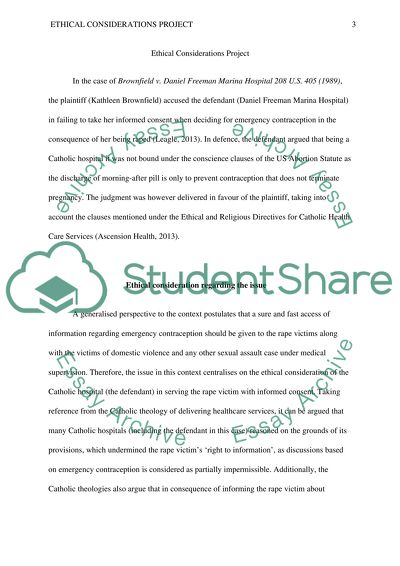Cite this document
(“Ethical Considerations Project. Brownfield v. Daniel Freeman Marina Essay”, n.d.)
Ethical Considerations Project. Brownfield v. Daniel Freeman Marina Essay. Retrieved from https://studentshare.org/health-sciences-medicine/1490197-ethical-considerations-project-brownfield-v-daniel-freeman-marina-hospital
Ethical Considerations Project. Brownfield v. Daniel Freeman Marina Essay. Retrieved from https://studentshare.org/health-sciences-medicine/1490197-ethical-considerations-project-brownfield-v-daniel-freeman-marina-hospital
(Ethical Considerations Project. Brownfield V. Daniel Freeman Marina Essay)
Ethical Considerations Project. Brownfield V. Daniel Freeman Marina Essay. https://studentshare.org/health-sciences-medicine/1490197-ethical-considerations-project-brownfield-v-daniel-freeman-marina-hospital.
Ethical Considerations Project. Brownfield V. Daniel Freeman Marina Essay. https://studentshare.org/health-sciences-medicine/1490197-ethical-considerations-project-brownfield-v-daniel-freeman-marina-hospital.
“Ethical Considerations Project. Brownfield V. Daniel Freeman Marina Essay”, n.d. https://studentshare.org/health-sciences-medicine/1490197-ethical-considerations-project-brownfield-v-daniel-freeman-marina-hospital.


